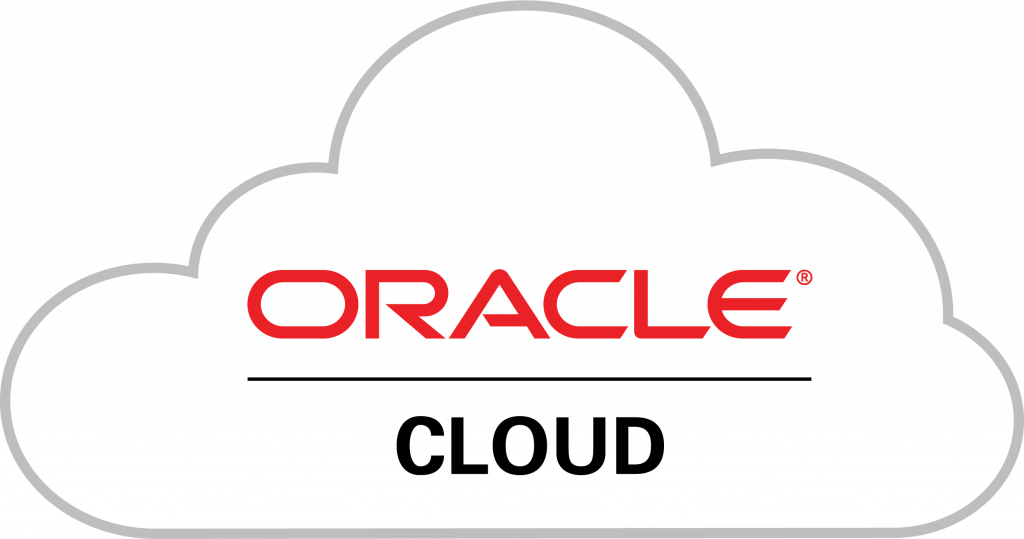
Advancement of technology, processing power, and storage has massively increased the popularity of cloud computing across various business domains. The lengthy and expensive process of purchasing servers, licenses, hardware, and installations has now been replaced with advanced technologies revolving around the concept of cloud computing.
With the advent of the cloud computing market, vendors such as Google, Amazon, IBM and Oracle have seen the shining colors. In this article, we are going to talk about the two major cloud computing vendors- Amazon AWS and Oracle Cloud, and try to state all the deciding factors that contribute in determining your administrative environment requirements. Oracle also known as data processing prowess has coupled its expertise with cloud computing attributes. Oracle has firstly launched the IaaS offering in 2015 and brought a very robust infrastructure in the market.
Amazon is a big pioneer in cloud services for more than a decade. When Amazon started in 2006, their offering was only IaaS (Infrastructure as a Service). Amazon offered users their storage space on a pay-as-you-go model. Now, they have evolved into a DaaS (Data-as-a-Service) and PaaS (Platform-as-a-Service) model.
What is AWS?

AWS (Amazon Web Services) is a cloud service provider offering Platform-as-a-Service (PaaS) and Infrastructure-as-a-Service (IaaS) solutions. Amazon’s cloud service offering provides the users with network, server, storage, email, remote computing, and security solutions. Amazon Web Services is one of the biggest vendors in the cloud computing market, hosting eminent websites like Instagram and Netflix.
Amazon has many options when it comes to cloud computing services, products, and tools. Its’ market has rapidly expanded since the time it launched in 2006. As per Business Insider, the total revenue amounted to $17.5 billion by the end of the year 2017, which was 43% more than in 2016. Though the numbers say enough, let’s dig more into the details of this popular cloud platform.
Also Read: Cloud Migration Strategy: Driving Your Business Growth
Why AWS?
Here are some of the reasons why so many organizations choose AWS as their cloud vendor:
- AWS provides cloud storage that supports hybrid, managed, low-cost, and block archive storages (such as Storage Gateway, Elastic File System, Glacier, EBS, S3), as well as a huge range of data transportation features.
- Support for numerous databases (RDS, Aurora, Redshift, DynamoDB)
- Supports advanced technologies such as IoT (Internet of Things), virtual and augmented reality, machine learning.
- Functions supporting Advanced computing.
- Tools enabling workload monitoring, configuration, and much more.
- Tools enabling performance and security optimization.
- Content delivery and networking.
- Migration tools & Mobile Services
- Business Intelligence (BI), Analytics and business productivity.
- Wide range of developer tools such as, CodePipeline, AWS Code Build, CodeDeploy).
- Security, identity, and compliance management.
In addition to the powerful feature kit, AWS has a very fine record of financial performances, and successful implementations.
Following are some of the key advantages that Amazon AWS offer-
-
Powerful Feature Kit
In comparison to the other cloud providers, Amazon offers a wide range of functionalities. Enterprises invest in AWS as it is a sure shot method of making the best out of everything these cloud technologies have to offer.
-
Pre-Integrated Solutions
AWS is surrounded by a wide ecosystem of independent vendors and consulting partners who help the businesses to implement pre-integrated AWS SaaS solutions.
-
Compliance & Security
Businesses migrating to Amazon AWS can be sure that the operations they perform in the cloud are completely compliant and secured.
-
Technical Support
The gripping reach of Amazon all round the globe is reflected in the technical support it provides to the AWS customers. The highly available multilingual support team makes it one of the reliable vendors in the market.
-
Multiple Data Centers
Amazon manages multiple small data centers all across the globe. This feature betters the service localization and limits the risk involved in local incidents.
-
Continuous Development
Amazon AWS is continuously enriching its platform with refined offerings. The service has also improvised the existing functionalities such as management and integration.
-
Pay-as-you-go Fee Model
This model allows the customers a control over the number of services they have to pay for, and even add the ones with growth. Also it is very easy to minimize upfront costs with AWS. Organizations can layout the expenses without requiring to invest in services or products they don’t require.
Why not AWS?
AWS, even after being a popular platform has various disadvantages that one must taken into account before making the final decision-
-
Complex Implementation
Too many Amazon AWS services demand a lot of expertise when it comes to support and implementation. Also, the businesses that need to take full advantage of this, have to have a firm hold on service updates and innovations. However, you don’t have to worry much as the managed service providers are very well aware of the implementation of AWS techniques; so in case you get stuck, feel free to reach them out.
-
Quite Expensive
A generic AWS-based solution might look like costing a reasonable amount. But if you wish to have a customized solution that meets all your business specific needs; then be prepared to get a huge chunk cut out of your pocket.
What is the Oracle Cloud?

Oracle Cloud is a cloud-computing service that combines Data-as-a-Service (DaaS), Platform-as-a-Service (PaaS), Software-as-a-Service (SaaS), and Infrastructure-as-a-Service (IaaS). The core purpose of this solution is to deliver developers and users with seamless workloads that meet storage, server, network, and application needs.
Oracle Cloud is relatively new in comparison to AWS, and hence it won’t be wrong to compare the two in terms of scalability. And even though, the solution hasn’t reached the top rankings of global cloud service provider list but the future leader has a lot to offer.
Why Oracle Cloud?
With the combination of PaaS, DaaS, IaaS, and SaaS solutions, Oracle provide a wide range of cloud products and services such as-
- Business analytics- Big Data, Business Intelligence (BI solutions), Data visualization, autonomous analytics, and others.
- Application Development including Blockchain, Mobile, IoT, etc.
- Cloud infrastructure Setting-up and Maintenance.
- Data integration & Management.
- Cloud for customer services- CRM Systems
- Content Management
- Enterprise integration.
- Security Solutions focused on compliance and safety.
Apart from the above-mentioned functionalities, Oracle offers many advantages to the companies that eliminates the need of purchasing 3rd-party solutions. Some of which are as follows:
1. Integrated Tech Stack
Oracle delivers middleware, apps, and databases as a wholly integrated system. There is no requirement of creating a patchwork of 3rd-party services coming from varied vendors and going through the trouble of adapting them to the application. To make the full advantage of the Oracle Cloud, it would be best to invest in an all-inclusive version.
2. Seamless Customization
Oracle allows certain flexibility to the clients for setting cloud services, matching their unique business needs.
3. Advanced Technologies
Oracle avails cutting edge technologies for making its cloud platform speedy and better performing; one of the qualities that sets this platform stands apart from the crowd.
4. Scalable Architecture
Oracle offers an architecture that is wholly scalable which allows the companies to expand their platforms with growth. It is a very essential trait in case of large scale enterprises as they go through a lot of digital transformation and even want to re-equip their operations from one area to another.
5. Customer Support
Users don’t have to worry as their issue will be addressed as quickly as possible.
6. Focus on Niche
Oracle instead of going something generic, had focussed on creating solutions that match the needs of specific customer segments during the building phase. It doesn’t emphasize on growing every platform in all possible ways, instead it focuses on the niche.
Why not Oracle Cloud?
Like every other solution, Oracle Cloud has also some downsides. Before making a choice, do consider the listed disadvantages this popular platform possess-
1. Performance & Low-end offerings
Bad Performance with solutions based on .Net. Because Oracle is focused on the high end, its offering around low-end is very much limited.
2. Unsatisfactory Minimal Solutions
The minimum product is not enough. Oracle has the ideology of out-of- box thinking, all the products and services abide by this. In such cases, minimal solutions are not sufficient for the business that require a simple feature set. Also, the organizations that require comprehensive platforms are less-likely to receive what they expect.
So what should you choose – Amazon AWS or Oracle Cloud?
Ensuring that all the requirements of your database are fulfilled with the right cloud vendor is a very critical business decision to make. Here are some of the contrasting differences that compare both the platforms on all metrics-
|
Metrics |
AWS |
Oracle Cloud |
| Cost | High costing; Depends on each specific configuration | High,also depends on each specific configuration. However, it is considered to be lesser than that of Amazon AWS |
| Market Position | The biggest market share; A longstanding leader. | A newcomer; Has a Small market share |
| Service Satisfaction | Offer diversity of services | The bare-bone application with minimal out-of-the-box functionality |
| Payment model | Pay-as-you-go option for adding the required services as they grow | Hard-sell,it kind of forces the customers to purchase the maximum service set at once. Has very expensive licenses in comparison to other vendors. |
| Technology | Relies on cutting-edge technology. Has database compatibility issues, and limited database performance especially, in comparison to Oracle | Representatives of Oracle claim the database technology to be around twenty years ahead of that of AWS. |
| Cloud fundamentals | A wide range of services and products that enables a robust and flexible cloud environment; in addition to meeting all requirements. | Cloud services and product are provided as a self-contained integrated stack |
| Customer support | Multilingual, possess localized support that relies on a huge network of service providers and partners. | Insufficient support of enterprise-level customers |
| Scalability | Near-unlimited scalability | Near-unlimited scalability |
The Verdict
The costing and payment model of AWS facilitates easy adaptability whenever companies require some fluctuations and variations. Companies can pay for services as need be. Talking about Oracle Cloud, users can also avail flexibility depending on how frequently they have to rely on services.
Amongst the two big names, it is very crucial to determine which platform would match the requirements of your company. Be it a large organization or a startup; the needs of cloud computing and data are rapidly growing. So don’t rush into making a decision. Got some queries? Feel free to contact our experts.



